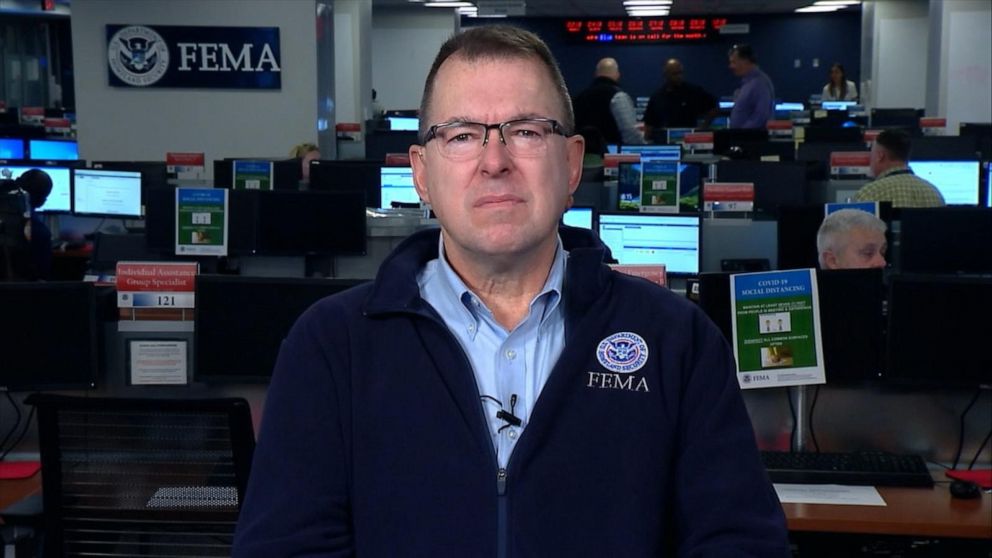FEMA head can’t say how many masks are going to hospitals; doctors say they don’t have enough supplies

WASHINGTON, DC -- The head of the Federal Emergency Management Agency could not say in interviews Sunday how many medical masks the federal government has acquired to send to hospitals in dire need of them as supplies dwindle amid the coronavirus pandemic.
"How many masks does federal government have right now and when can they get to local hospitals?" was the question FEMA Administrator Peter Gaynor was asked on both ABC's "This Week" and CNN's "State of the Union."
"When it comes to supplies, we have been shipping from the national stockpile for weeks," he replied. "We've been shipping, we shipped today, we're going to ship tomorrow."
Asked again about a number, Gaynor, who said that "it is a dynamic and fluid operation," indicated that he couldn't give a "rough number" and that his "mission is operational coordination." Other federal officials so far have not provided details on the specific supplies or amounts sent.
When it was suggested that the government's inability to provide a number on the masks being supplied to hospitals could send a negative message to the public, Gaynor downplayed the importance of a specific figure.
"I'm not sure it's about an exact number," he said.
Top healthcare officials have said that the U.S. does not have enough stockpiled medical equipment like masks, gowns and gloves to fulfill the anticipated need of the nation's health care system as the number of cases surge across the US.
Dentists and other businesses are donating equipment and supplies to hospitals that are reporting shortages while treating coronavirus patients, and the federal government is sending supplies from the Centers for Disease Control and Prevention's national stockpile and working with private companies to ramp up production.
The Defense Department announced last week that it would free up five million masks in its own stockpile for hospitals to use.
Meanwhile, people are reaching out to doctors and hospitals on their own, offering what they can. The N95 respirator masks and other personal protective equipment are among the most requested items for doctors and nurses on the front lines of the fight against the virus. Medical officials, though, have also expressed a need for swabs, testing materials and ventilators.
Gaynor, who runs the agency that the White House has put in charge of coordinating response efforts, also advised jurisdictions and facilities needing urgent supplies "if you find it on the market, go ahead and buy it."
"The demand on these critical items is not only nationally, it's globally. So, we've been shipping. We shipped today, we're going to ship tomorrow. We're linking supplies, not only from the national stockpile, but from vendors and commercial donations," he said. "And it's just not about the federal government buying it. It's also about those hospitals and other facilities, governors that, if you find it on the market, go ahead and buy it. FEMA will reimburse you for it."
In an interview on the Sunday morning talk programs, Illinois Gov. J.B. Pritzker said it's helpful having FEMA as the "central repository for everything that we need," but said that while the state has received some requested supplies from the agency, it's "a fraction" of what has been requested so far.
Pritzker, a Democrat, also complained that states are competing against each other for key supplies and said there needs to be more federal coordination on these goods.
"We're competing against each other. We're competing against other countries. You know, it's a wild west, I would say, out there," he said. "And indeed, we're overpaying, I would say, for (personal protective equipment), because of that competition."
As of Sunday morning, there are at least 26,039 known cases of the novel coronavirus in the U.S. and more than 300 deaths from the disease caused by the virus.
